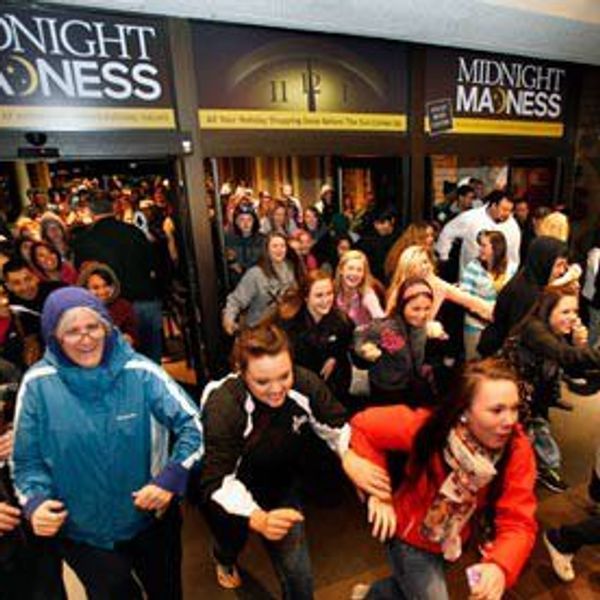To many, Black Friday means one thing: shopping. The sheer chaos that ensues as a result of the cultural phenomenon supposedly kicks off the holiday season. What better way to start celebrating than engaging in physical combat to achieve great deals? Snaps for commercialism!
There are several different interpretations of the name “Black Friday,” but the most common explanation actually refers to an economic concept. In the world of retail, the non-holiday season operates “in the red” meaning that January through November is usually a period of financial loss. In financial records, red ink would be used to indicate negative trends, and black ink for positive trends. So, evidently, when November comes around, retailers begin to make more profit. Cue the black ink. The terms was first coined in 1981 in the Philadelphia Inquirer:
Cyber Monday came much later. Ellen Davis, Senior Vice President of the National Retail Federation, coined the term in 2005. Think Black Friday, but online, and on Monday instead of Friday. Before participating in either (or both), make sure to consider the pros and cons of the sale-ebrations.Black Friday Pros:
Supposedly great sales
Physical exercise
What doesn't kill you makes you stronger.
Pain is just weakness leaving the body
Black Friday Cons:
Wounds and injuries
Damaged pride
Empty wallet
Physical and Mental Exhaustion
Cyber Monday Pros:
Sweatpants.

Sleep in the Friday after Thanksgiving
I repeat, sweatpants.
Pizza while shopping (also known as: multitasking)
Cyber Monday Cons:
Feeding addiction to technology
Keeping track of spent money is harder in the digital world.
Implied laziness
Missing the experience of Black Friday shopping


































